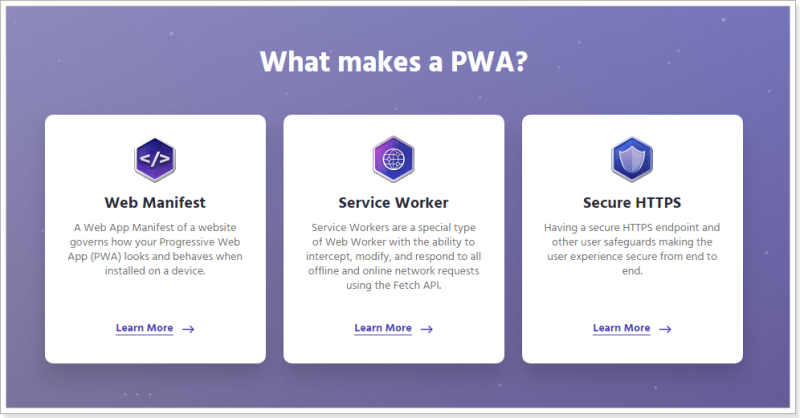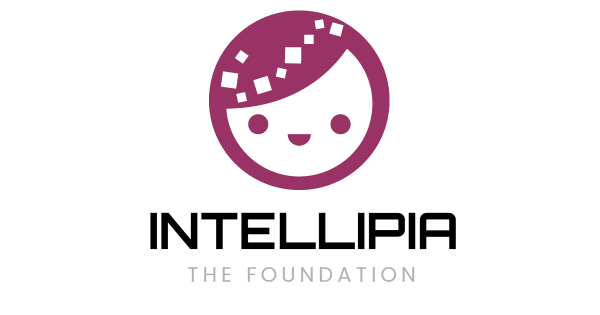It seems that there is a growing interest in third-party cookie restrictions, albeit belatedly, in light of recent security issues such as those with Google Drive.
This can be attributed to the high market share of Google Chrome, with Microsoft Edge joining the fray, which has brought about a clear direction.
Interestingly, this direction has been associated with PWAs. Is there a compelling reason for this?
Simply put, many apps are being developed based on hybrid app frameworks, with the primary reason being the ease of maintenance, backend management, and updates. It's akin to traditional web development using technologies like JavaScript and PHP. The cornerstone here is the web view.
At one point, there were issues with many apps being discontinued or not functioning due to web view problems related to Android 7. This indicates a significant presence of apps developed using web view. PWAs, being entirely web browser-based apps, offer a different installation and execution method, providing greater flexibility.
Since they are installed and run within the browser rather than being installed from app stores like traditional apps, they offer much easier maintenance, updates, and overall management. While developer preferences may vary depending on their field, they would generally agree on the ease of management, updates, and upgrades.
Hence, there's considerable interest in the advancement of PWAs, particularly with the expansion to Apple devices, aligning with the demands of the times.
Does this relate to security issues such as third-party cookie restrictions?
Certainly. The better the browser's security, the safer PWAs become, as browsers adhere to security updates. This allows developers and app service providers to develop safer apps on this foundation. Importantly, this isn't limited to a single browser; rather, most browsers are advancing in terms of security, sharing standards, which prevents any one browser from monopolizing the market or monopolizing the existing app market. In this process, the push for cookie restrictions has been crucial. One of the reasons why web apps are restricted
and security issues are mentioned is due to cookie problems.
PWAs haven't significantly expanded in the market due to such issues. Instead, the strongest movements regarding browser security have come from Apple's Safari and Mozilla's Firefox. With the highest market share, Chrome and Edge joining in enhancing security has raised expectations for PWAs. Microsoft, in particular, is the most proactive about PWAs.
Can Apple be seen as leading the browser and web view market this time around?
Mozilla can be considered the leader in browsing technology, having made significant contributions to browser platform standardization. Apple is perceived more as a company that has made an impact on the browser market rather than a leading one. Apple has significantly elevated Safari's cookie handling due to security reasons and has essentially supported web apps through the "Add to Home Screen" feature, giving impetus to the PWA market.
On one hand, standardization issues with Safari remain unresolved. However, if Apple actively participates in PWAs in the future, it could lead to further standardization among browsers. Additionally, personally speaking, there might be a possibility of a return of Safari for Windows.
Is there a reason for conceptually distinguishing between web browsers and web views? Can't web views be considered browsers?
They are not synonymous but differ conceptually and technically. A web browser is an independent application, whereas a web view is a component that allows app developers to display web content in their applications. Android has Android WebView, and iOS has WKWebView. Since Chrome holds a high market share in Android, it's common to use Chrome-based web views.
Why do we mention web browsers and web views together when explaining PWAs?
Conceptually different though they may be, they share the same web engine, so web views can be influenced by updates and security levels of web browsers. While web views can be seen as using some elements of web browsers and have different update cycles, they are not completely separated from browser changes, update levels, and security.
PWAs provide an environment where users always run the latest version of the web app. Although web view-based apps can selectively receive and control the influence of the browser's engine, there are undoubtedly speed implications. However, in discussing the relationship between security issues and PWAs, web views were also considered to explain how they differ.
Ultimately, can we consider it a starting point for genuine progress, from the perspective of PWAs, that the security enhancement of web browsers, especially third-party cookie restrictions, provides a stable environment for further advancement?
Yes, not only for PWAs but also in the IT market, web browsers will remain crucial and highly important applications for global companies. Many applications' stability is determined by the security and support of web browsers. Problems with web view engines are often the cause when apps crash or have execution issues. The enhanced security of web browsers mainly aims at personal data protection and intends to increase stability through various tracking prevention options, drawing from lessons learned from the history of the IT market.
A society where IT technology is a 'choice' and one where it is the 'foundation' are not the same, are they? While it can now be considered a solid foundation, if the web browser landscape is precarious in terms of security due to third-party cookies, the direction ahead is also risky.
We must progress. Hence, cookie restrictions are inevitable. Cookie restrictions aim to reduce advertising and tracking, strengthen user data protection, allowing users to browse the web more securely and protect their personal information, while PWA developers can provide users with a safe environment focusing on security and data protection. A trusted environment for apps is essential.
The talk about the significant activation of the PWA market due to third-party cookie restrictions should not be interpreted as the only factor but rather as a symbol. The issue of cookie restrictions is believed to have a considerable impact on the entire global market, not just on PWAs, serving as a significant turning point.
You mentioned that Microsoft is the most proactive about PWAs. What initiatives have they taken?
While Google is also proactive, I mentioned Microsoft's involvement because it seems they're leveraging PWAs to benefit their Windows market share. There has been a trend of actively supporting PWAs on Windows for the past few years. Since PWAs can be installed like native apps on PCs with just a web browser, Microsoft Edge is particularly supportive. For instance, it can be set to run at computer startup, and the installation options are quite diverse.
Additionally, Microsoft provides tools and libraries for PWAs through the open-source community.

- https://www.pwabuilder.com -
PWA can be installed via browser-based installation. If Chrome and Edge are installed on a PC, users can choose to install with either one. The process is straightforward: users simply open the chosen browser, enter the installation URL provided by the developer, and the browser handles the rest. The same applies to mobile devices; users can choose to install using Chrome or Edge. Browsers are keen on PWA adoption, and sometimes browser icons are integrated into PWA app icons.
While Firefox and Safari seem interested in PWAs, they don't yet support them like Edge or Chrome do. They're proactive in terms of security, but their enthusiasm for PWAs seems to need some time to develop. Security is crucial for the significant advancement of PWAs, and it seems that phase is still in progress.
There might be skepticism about PWAs. Especially given the accumulated shortcomings of web apps at this point.
Certainly, that's possible. However, PWAs are not just simple web apps; they are officially supported applications based on web browser technology, offering features like push notifications and offline support. One of the drawbacks of web apps was upgrade issues. As the smart device environment continues to enhance security, Android and iOS periodically update their web view engines. In the case of traditional web view-based web apps, if the web view cannot adapt or if additional work is not done in the source code, they may cease to function.
Even though they are web view-centered web apps, they require native-style installation processes. If the technical expertise of developers handling web apps is insufficient, their responsiveness can weaken. Hence, cases of app service interruptions are not uncommon.
However, PWAs enable traditional web developers to actively utilize their web technology skills. While there's still much to learn about PWAs, the learning curve is manageable. Of course, PWAs also have their drawbacks. The fundamental drawback is their dependence on web browsers. However, security issues and app development shouldn't be viewed from the perspective of developers or app service providers but from that of users.
This is in line with the demands of the times, accommodating users' demands for personal data protection and providing uninterrupted app services. In this context, PWAs have high expectations and prospects in the current era. Therefore, with high market shares, both Google and Microsoft are likely to be close allies, at least within the realm of PWAs.
Is it too early to forecast that PWAs will become mainstream and shrink the app store market?
Anyone in the development field would never make such a forecast. While the market may diversify, PWAs are a technology with an identity evaluated by its dual nature based on web browsers. Even if web browser security improves, there will inevitably be differences between apps installed and operated based on web browser technology and native installable apps utilizing web views.
For example, for apps that require other communications besides web views or apps that need to be automatically started, adopting the conventional hybrid app approach may be more convenient than PWA. If the client app is primarily web view-based, then PWAs may prove useful. It's essential to use technology appropriately in various situations in development practice.
|
Related Posts
|
|
Chrome third-party cookie blocking fully implemented
|
|
1.Causes of Google Drive issues
|
|
2.Alternatives for Google Drive issues
|
|
Changes in browsers and outlook on vanilla JS
|
Intelipia defines knowledge in contemporary terms, emphasizing its fluid nature. As a result, all content is edited with a foundation of flexibility. Intelipia eschews the pursuit of fixed answers, instead aspiring to create a joyful 'knowledge playground' centered around principles. Responsibility for utilizing Intelipia's content rests with the users, a fact underscored by the platform.


